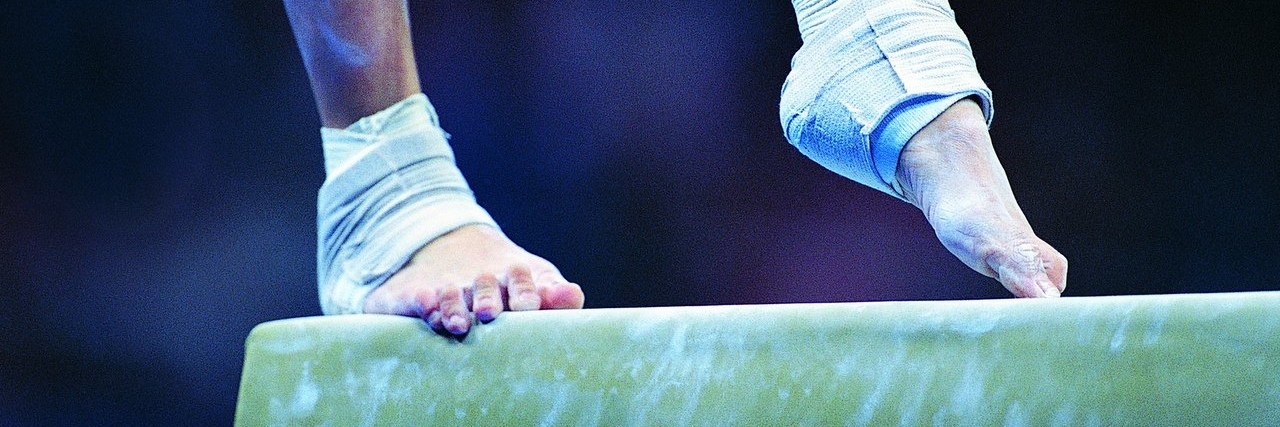As the Olympics begin this week in Rio de Janeiro, I thought about how I’ve always wanted to be a gymnast. I remember watching Dominique Moceanu, an Olympic gold medalist, execute a flawless floor routine, and I wanted nothing more than to do the same.
• What is Ehlers-Danlos Syndrome?
• What Are Common Ehlers-Danlos Syndrome Symptoms?
I shared this envy with other little girls. I would watch other girls on the playground practice and try to imitate them. Back then, I was fearless. I asked my new friends to teach me things, and I would attempt them without any hesitation or consideration of any potential negative consequences. I was determined to learn how to do it and to be like my new friends.
My friends were shocked when they saw how flexible I was. Because of my hypermobility due to Ehlers-Dandles syndrome, I was able to do things that normally required gradual training. This was the first time someone told me I “could be a gymnast.” In fact, I hear this remark all the time. I “look” like I could be a gymnast because I fit the “profile” due to my small stature, degree of flexibility and toned arms and legs.
However, my flexibility is actually a problem. I’m at risk of injury because my joints dislocate. This isn’t to say that I gave up or simply didn’t try. The reality is that my physical limitations prevent me from being a gymnast. My dislocations, periodic paralysis episodes, exercise intolerance and postural orthostatic tachycardia syndrome (POTS) ultimately made this dream impossible and incredibly unsafe.
None of these obstacles can be overcome with practice or conditioning. I realized this when I was determined to do a handstand. I did all the right things, I did proper stretches and practiced for weeks. But I only lasted about three seconds without falling over after I realized how unstable my joints were.
As I got older, I developed exercise intolerance and frequent fainting episodes, which would further hinder my ability to withstand activities that involved exertion or being on my feet for extended periods. I also developed a loss of muscle function that causes a burning sensation in my muscles and feels like my arms and legs have concrete weights attached them.
Unfortunately, all of these factors would be difficult to ignore on a balance beam, where my life would depend on my physical strength to execute a perfect landing. I learned the last thing I can count on is my body. So there would be little trust — while suspended in mid-air — that I would I land on my feet.
To other young girls who are dealing with physical limitations that make sports like gymnastics a risky idea, please don’t ever feel like you’re missing out. You shouldn’t have to feel like you won’t fit in because you’re unable to participate. So much changes from elementary school to high school. It’s likely your friends will probably lose interest in gymnastics like my friends did and will move on to other things.
Unfortunately, I just wasn’t cut out to be a gymnast, and, not surprisingly, neither were any of my friends. I’ve grown to accept that almost everything is a spectator sport for me due to my limitations. Despite this, I truly feel like I’ve never missed out.
Sitting on the sidelines has allowed me to appreciate other people’s talents and motivates me to hone my own skills. It’s important to find other hobbies or interests that make you happy. Trust me, your passion will lead you to making good friends.
Not being able to follow this particular dream has never been a detriment in my life as an adult. I have so many other dreams to follow that are attainable and the pursuit of them has made my life satisfying. As a result, I’ve made my mark on the world with my talent in writing, art and design. It’s perfectly OK to be different and to be good at other things. Just be you.
Remember, athletes aren’t the only heroes or inspirational figures in this world. You’re just as inspiring and courageous.
Lead photo source: Thinkstock Images

